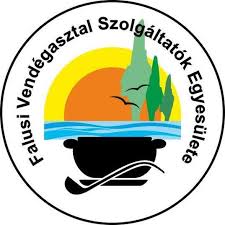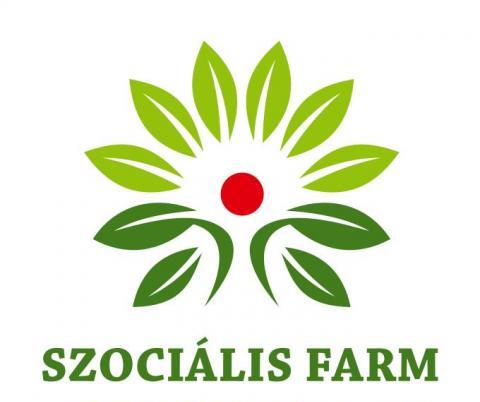
Welcome to the 2nd issue of the CUES newsletter!
Project Updates: Insights from Research
During the 2nd semester of the project, our academic partners worked on building the foundation for change by identifying the factors that influence consumers’ (un)sustainable food choices. In this context, five systematic reviews are being conducted to summarise the influence of psychological, social, and digital factors on consumers’ sustainable food choices. Additionally, focus groups were organised with European consumers on three main topics: resistance to veganism among self-identified anti-vegans, perceptions of plant-based fish and seafood consumption among omnivores and flexitarians, and the broader factors shaping sustainable food consumption in the general population. In addition, three surveys were initiated to explore the role of personal, social, and media factors in shaping sustainable food consumption across 14 European countries. Two additional surveys will focus specifically on vulnerable consumer groups, including older adults and low-income populations.
A literature review was conducted to identify research gaps, which informed the development of a model incorporating antecedents, mediators, and objective contexts. The survey design was tailored to respondent limitations and task objectives, defining research scope and variables such as digital innovations for transparency, value chain structure, organisational profile, technology context, environmental context, and transparency and traceability performance.
Co-design of solutions for the food value and cultural change
Α multi-actor participatory approach was applied to ensure active engagement from various stakeholders across the food value chain. Four online workshops, with participants from Italy, Hungary, Iceland, and Greece were conducted to identify key barriers, including market-related risks, complex regulations, SME capacity constraints, data acquisition challenges, and trust issues.

The cultural Intervention leads have initiated the back-casting method, starting with stakeholder mapping and the identification of drivers and barriers to sustainable food behaviour. TVE and OpenDot organised workshops with relevant stakeholders to develop a vision for their interventions. FBPA is in the process of organising interviews with the same goal.
FTAO and Heidelberg University teams started to work on the policy mapping research to analyse policies at the EU, national, and regional levels aimed at promoting sustainable and ethical food consumption. At the EU level, the initial policy mapping has been completed, and the initial findings reveal a significant increase in sustainability-related policies during the 2014–2019 legislature, coinciding with the EU Green Deal, while earlier periods focused more on health. In parallel, the groundwork for the national-level policy mapping has begun by selecting five countries based on the ‘food region’ classification and identifying relevant policy sources.
Project Highlights
2nd Project Meeting
The CUES project held its 2nd consortium meeting on September 16-17, 2024, in Leuven, Belgium hosted by KU LEUVEN. Participants engaged in collaborative sessions to review progress, share insights, and outline strategic plans for the upcoming year.

| Explore more here. |
HSCE International Conference
On September 12-13, the Erasmus University Rotterdam team presented insights from the CUES Project at the Hellenic Society for Circular Economy International Conference in Chania, Greece. The poster presentation, entitled “Triple Change for Sustainable Food Systems: propositions from the CUES project”, sparked fruitful discussions with international experts from academia and industry.

| Explore more here. |
XLVIIth Annual Meeting in Kecskemét
Kislépték Association presented CUES at the LVIIth Annual Meeting in Kecskemét, Hungary held on October 3-5, 2024, organised by the Hungarian Society of Nutrition. The conference featured diverse speakers, including doctors, dieticians, researchers, and food chain operators, providing valuable insights into the interconnected nature of nutrition and sustainability.

Etmaal 2025 Conference
CUES partners from Erasmus University Rotterdam and KU Leuven participated in Etmaal 2025, a leading conference on media and communication, held in Bruges, Belgium, on February 3-4, 2025. Organised by KU Leuven’s Department of Communication Science, the conference explored media’s role in shaping well-being in the digital age. The conference also featured various sessions on food and sustainability, where CUES partners presented findings from the systematic reviews and focus groups.

| Explore more here |
TealHelix & Infoodmation project Kick-off meetings
Our synergy projects – TealHelix & Infoodmation – held their kick-off meeting in September and January in Leuven. The CUES KU Leuven team was there on both occasions to present CUES and discuss possible collaborations.

| Explore more here… |
| …and here |
Publications
The CUES project has made a significant contribution to the scientific community with its first research publication. Our partners have published a paper in a prestigious scientific journal:
Polyportis, A., De Keyzer, F., van Prooijen, AM. et al. Addressing Grand Challenges in Sustainable Food Transitions: Opportunities Through the Triple Change Strategy. Circular Economy and Sustainability (2024). https://doi.org/10.1007/
Project Video
Our promotional video is ready and explains the main concept, objectives and targets of CUES in a creative way. Watch it here.
Explore our videos, leaflets and other resources to get a deeper understanding of what we do on our project website.
Synergies with other projects & initiatives
The CUES project has joined forces with other projects, networks, and initiatives towards making the European and global food system more sustainable. CUES has already connected with powerful initiatives focusing on food waste, traceability, smart farming, and food culture.
On September 11th and 13th, 2024 Q-PLAN’s team joined a Synergy Webinar, to present CUES alongside the EU-funded projects ALLIANCE, FishEuTrust, Sea2See, Theros, Watson, and TealHelix. The webinar provided a foundation for knowledge exchange, aiming to foster connections and explore potential collaboration opportunities across projects focused on sustainable food consumption and the future of food.
CUES was also presented by the Wangenigen University’s team, in the “Traceability & Verification in Food Supply Chains, the Technological Perspective” Cluster Webinar on February 21st. Experts from 8 EU-funded projects ALLIANCE, FishEuTrust, Sea2See, Theros, Watson, Titan, CUES and TealHelix presented the latest technologies aimed at improving traceability and verification in food supply chains.

| See our synergy projects here… |
Follow CUES project on social media and visit our website to stay up to date!
















